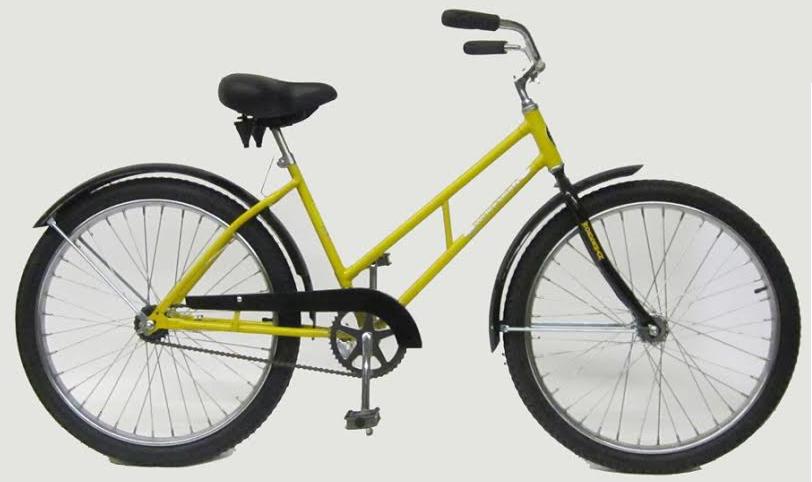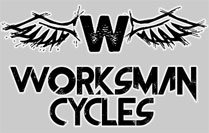American Made Bicycles Still Matter: Worksman Cycles and the Strength of Keeping Manufacturing Local
 For more than a century, America’s manufacturing backbone has eroded as companies chased cheaper production overseas. The consequences are visible everywhere: shuttered factories, fragile supply chains, and products built fast rather than built well. Yet in the middle of that decline, one company never left. Worksman Cycles, America’s oldest bicycle manufacturer, has been producing durable bikes and tricycles since 1898 and continues to do so from its Conway, South Carolina factory.
For more than a century, America’s manufacturing backbone has eroded as companies chased cheaper production overseas. The consequences are visible everywhere: shuttered factories, fragile supply chains, and products built fast rather than built well. Yet in the middle of that decline, one company never left. Worksman Cycles, America’s oldest bicycle manufacturer, has been producing durable bikes and tricycles since 1898 and continues to do so from its Conway, South Carolina factory.
This isn’t a nostalgia story. It’s a reminder that domestic manufacturing isn’t a luxury; it’s a working system that produces quality, stability, and accountability. A Worksman bicycle is more than an American-made product; it’s a case study in what happens when a company chooses to invest in people, processes, and environmental responsibility rather than distance and shortcuts.
The Endurance of an American Factory: American Made Bicycles
When Worksman Cycles began in 1898, the mission was practical: replace the horse and wagon in New York City with a vehicle that could move goods efficiently. That focus on function built a reputation for utility cycles tough enough for factory floors, delivery routes, and daily work.
Over a century later, the company’s purpose hasn’t changed, but its perseverance has become rarer. In an era when over 88% of bicycles sold in the U.S. come from China, Worksman stands as one of the few still welding, coating, and assembling here at home. Their Conway facility employs around 50 American workers who handle every critical step: machining, welding, powder coating, wheel building, and final assembly. Each bike that leaves the line carries the imprint of skilled labor, not anonymous mass production.
Quality and Accountability You Can See
Domestic production creates something no overseas factory can match — direct control. The same team that welds a frame can inspect its coating, assemble it, and pack it for shipment. If a problem arises, the fix happens in days, not months. That speed and oversight mean fewer warranty issues and more consistent results.
The difference shows up not only in the finished product but in how it’s made. U.S. factories are legally required to follow strict safety, environmental, and quality standards. Every weld station must meet ventilation rules; every coating line must manage emissions and waste responsibly. These aren’t voluntary measures; they’re embedded in the process. That means every Worksman bike comes from a system built on compliance, not compromise.
The Environmental Case for Staying Close to Home
The environmental impact of an American made bicycle begins long before it reaches the road. Manufacturing overseas and shipping across oceans add an enormous amount of embedded carbon to a bicycle’s footprint, emissions that never go away. A product built domestically travels hundreds of miles instead of thousands, drastically reducing transport emissions.
At the same time, Worksman’s processes comply with U.S. environmental protection laws that govern everything from solvent use to powder-coating waste. Cleaner production and shorter shipping routes create a tangible environmental advantage. And because the bikes themselves are designed for long service life, the impact per year of use drops even further. A durable product used for decades pollutes less than one that fails after a few seasons.
Value That Outlasts the Price Tag
Many people shopping for a bike want something great, but still have to watch their spending. The temptation to buy the cheapest option is understandable, but it rarely saves money in the long run. Lower-cost imports are often built to be replaced rather than repaired.
Worksman’s American made bicycles are different. By manufacturing in the U.S. and selling factory-direct, they remove layers of markup while still delivering a product designed for decades of use. That means fewer breakdowns, more straightforward repairs, and a longer lifespan, all of which save the buyer money in the long run. Durability isn’t a luxury; it’s financial prudence.
For industrial clients like GM, Ford, and Boeing, who use Worksman tricycles inside massive facilities, reliability isn’t just a preference; it’s a necessity. Those same design principles apply to everyday riders. Whether you’re using a Worksman for commuting, deliveries, or leisure, the strength and serviceability are built into the frame.
The Honest Truth About Components
In a global market, complete independence isn’t realistic. Worksman is transparent about that. Certain bicycle parts, such as tires, tubes, spokes, and saddles, are sourced overseas because no large-scale American producers remain. But the heart of the bike —its frame, finish, and assembly —is done on U.S. soil.
That distinction matters. The value-added work that defines quality still happens domestically, under regulated conditions. And every finished product undergoes final inspection in Conway before it’s shipped to a customer. This approach blends global practicality with local accountability: a balance most manufacturers gave up long ago.
Why American-Made Still Matters
When a product is built in the U.S., it supports more than a company. It sustains entire communities of welders, assemblers, inspectors, and suppliers who depend on that production. It upholds labor standards that guarantee fair wages, safe workplaces, and regulated environmental practices. It creates products that are traceable, repairable, and accountable.
Choosing a Worksman isn’t about sentimentality. It’s about results that can be measured — in durability, in lower emissions, and in the assurance that your purchase supports ethical labor and domestic skill. That’s the real value of an American made bicycle: it lasts longer, rides cleaner, and keeps more of your dollars where they belong, in American hands.
A Future Built the Same Way It Always Was
Worksman’s story isn’t about surviving the past. It’s about proving that American manufacturing still works when a company fully commits to it. Every time a Worksman leaves the Conway factory, it represents the continuation of a 125-year promise: that quality, integrity, and local labor still have a place in a global market.
In a world of disposable goods and uncertain supply chains, that promise matters more than ever.







